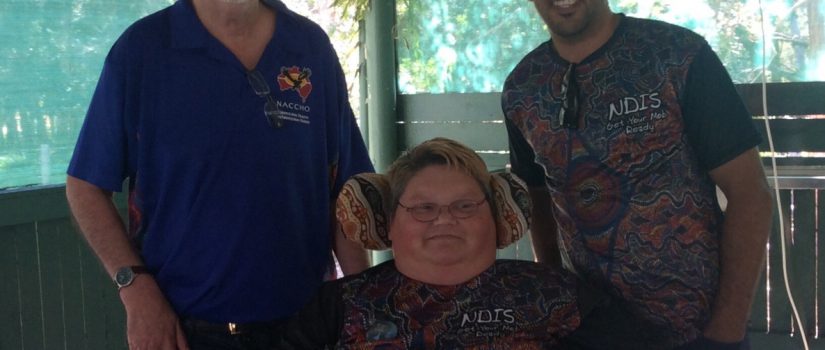Colin Cowell My Stroke Journey

Australian National University research found around one-third to a half of Aboriginal and Torres Strait Islander people in their 40s, 50s and 60s were at high risk of future heart attack or stroke.
It also found risk increased substantially with age and starts earlier than previously thought, with high levels of risk were occurring in people younger than 35.
The good news is more than 80 percent of strokes can be prevented.
As a first step, I encourage all the mob to visit one of the 302 ACCHO clinics , their local GP or community health centre for a health check, or take advantage of a free digital health check at your local pharmacy to learn more about your stroke risk factors.”
Colin Cowell former NACCHO Social Media editor 2012 -2020 and himself a stroke survivor
See all 100 NACCHO Aboriginal health and stoke articles
You
would think with 50 years in the workforce,- 30 years of those in Indigenous health
promotion at a national, regional and local level – I would have a reasonable
awareness about stroke symptoms. But I didn’t.
In 2014 I was rushed to hospital by ambulance with blood pressure of 235 over
180, suffering what I now know as transient ischaemic attack (TIA).
It was a very distressing period with my face a jaw seized, but I was able to
recover fully within a short period of time.
In May 2015, I had returned to Canberra from a work trip where I had spent three months visiting for rural and remote health services throughout Australia. I was there to pack up our house before a move to Coffs Harbour. I was at home packing when I started to feel exhausted, I had some weakness in my right arm and trouble speaking.
I
dismissed it, telling myself it was a virus or I was worn out from the move.
But seeing me holding my weak arm and noticing my trouble speaking, my young
aboriginal mate Billy recognised these F.A.S.T. (Face. Arms. Speech. Time) symptoms
and told me I was having a stroke! I went immediately to my local doctor who confirmed
the diagnose of stroke and had me in the hospital specialist stroke unit within
15 minutes.
Following extensive tests, I my stroke was diagnosed. I needed surgery.
The
surgery went well and while in hospital I was provided with a mountain of
stroke education material including the brilliant Stroke Foundations ‘My Stroke
Journey, access to www.enableme.org.au.
For more than a week I lost the use of my right arm, could hardly talk, had
memory loss and required assistance to walk and was very concerned about my
future. Fortunately, the Stroke Unit had a range of allied health worker
support with physical, speech and mental health rehabilitation support. I was
released after a few weeks with an appointment for surgery in late December.
Having just sold our house in Canberra my wife and I had moved to Coffs Harbour,
so interim rehabilitation and support was transferred to local services. I was
also able to join the Coffs Harbour Stroke Recovery group who were also a great
support.
The Stroke Foundation support services and resources really helped my recovery .
With my background in Indigenous health when a vacancy on the Stroke foundation
Consumer Council and Board arose in early 2016, I decided to give something
back and was successful in my application and subsequent appointment. I was
able to serve in those roles for 18 months.
Since 2012 as the social media editor at NACCHO with 65,000 followers I have been able to promote the great work of the Stroke Foundation to our 302 Aboriginal community controlled clinics and our thousands of supporters and stakeholder in the Indigenous health sector.
In
August 2020 having just turned 70 I retired from NACCHO to take up part time
role mentoring in Indigenous business at the Coffs Harbour Innovation centre
and I having the time to continue as a Strokesafe speaker / ambassador and assist on the Stroke Foundation Young Project
Finally if I can leave you with one word
or four letters of advice remember F.A.S.T ‘cause it certainly saved my life
Using the F.A.S.T. test involves asking these simple questions:
Face Check
their face. Has their mouth drooped?
Arms Can
they lift both arms?
Speech Is
their speech slurred? Do they understand you?
Time Is critical.
If you see any of these signs call 000 straight away

No comments yet.